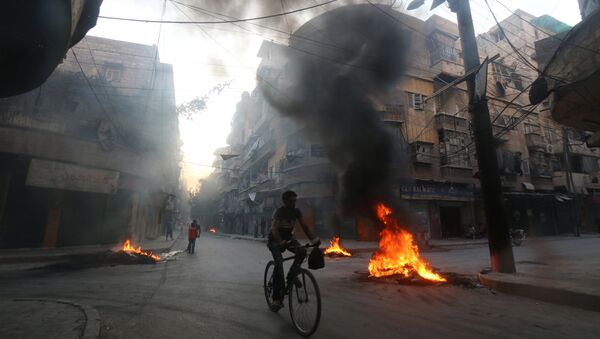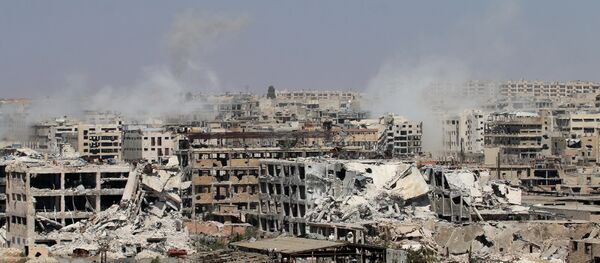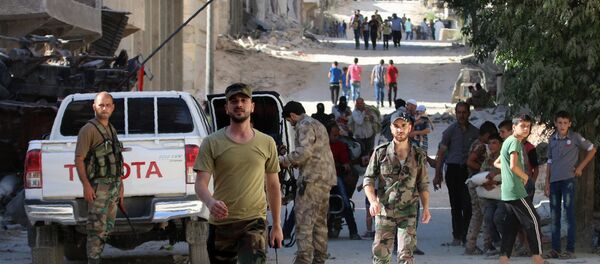"Recent events within Aleppo will make the work of our teams on the ground much more difficult, but we are committed to continue supporting the victims of this tragedy," Mohammad Shakir, a spokesman for Islamic Relief that has been supporting victims of the Syrian civil war since 2011, pledged.
On July 17, eastern districts of Aleppo came under siege by government forces, while fighting in other parts of the city, which is split between government and militant forces, also escalated recently amid the failure of the fragile ceasefire. According to various estimations, up to 300,000 civilians are trapped in Aleppo without access to necessities as the last delivery to reach those stranded was in June.
"We will continue to call for all parties to the conflict to respect international humanitarian law and that civilians have a right to self-protection and the protection of civilian infrastructure such as schools, hospitals and energy supplies," Shakir stressed.
"Any exit corridor must provide for the protection of those who wish to leave and ensure that they are able to freely go where they feel safe. A sustained ceasefire is needed as a first step to ensure their safety," Christy Delafield added.
Across Syria, Egeland said, the United Nations has only been able to meet about 40 percent of its aid delivery targets for June and July. The United Nations had hoped to reach 1.2 million people over the last two months.





